The average cost of Breast Cancer Treatment in London approximately starts from USD 15000
Treatment cost
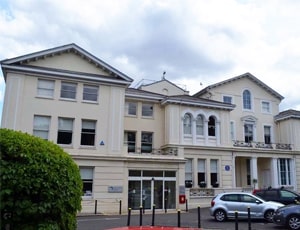
Apart from in-detail treatment procedures available, Cancer Centre London located in London, United Kingdom has a wide variety of facilities available for International Patients. Some of the facilities which are provided by them are Accommodation, Airport Transfer, Choice of Meals, Interpreter, SIM, TV inside room. Also listed below are some of the most prominent infrastructural details:
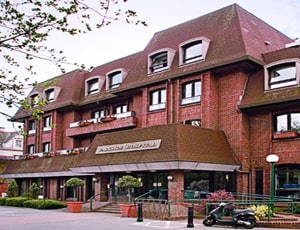
Apart from in-detail treatment procedures available, Parkside Private Hospital located in London, United Kingdom has a wide variety of facilities available for International Patients. Some of the facilities which are provided by them are Accommodation, Airport Transfer, Choice of Meals, Interpreter, SIM, TV inside room. Also listed below are some of the most prominent infrastructural details:
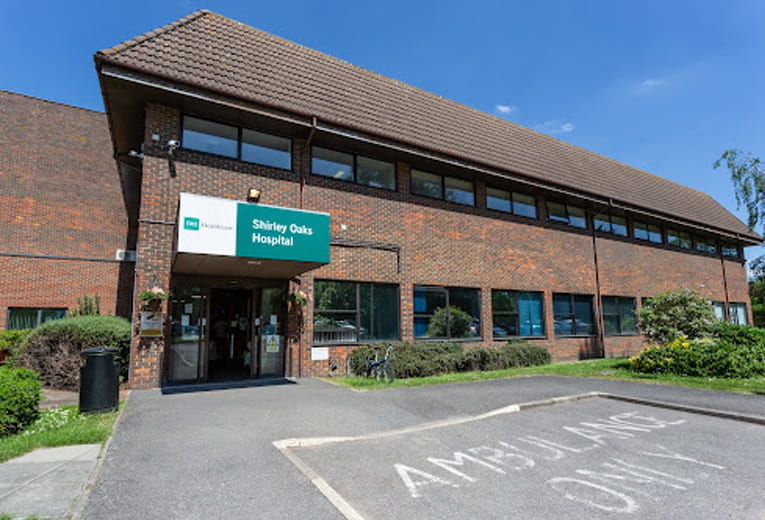
Shirley Oaks Hospital is a multispeciality hospital established in 1986 and is part of Circle Health Group. The hospital is located on the outskirts of Croydon in Shirley Oaks Village. The hospital offers a wide range of diagnostic and treatment services to patients allowing them to choose the services that they wish to avail in a hassle-free manner.
The hospital is a multispecialty facility that offers all types of treatments from 15+ specialties, including general medicine, ophthalmology, gastroenterology, and dermatology. Shirley Oaks Hospital is associated with 80+ consultants from within the UK.
The hospital offers services and treatments to patients under the age of 18 years and above.
Shirley Oaks Hospital offers a very warm and comfortable environment to the patients, from the moment they enter the building, whether for consultation or inpatient stay.

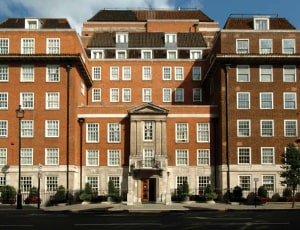
We, The London Clinic family, take pride in our reputation as a multi-disciplined healthcare facility. With skilled nurses and expert consultants, our medical teams are always focused to deliver the best individualized medical care. More than 1,000 nursing, clinical, and support staff are currently working with us to give our patients an extensive range of treatments. We use cutting-edge technologies to ensure a comprehensive range of healthcare services. Not only that, in order to make your stay with us comfortable enough, we equip our patient bedrooms with:
Patients from all over the world fly to us to get their procedures done by our specialist doctors, which is why we also provide our patient's concierge services. Our concierge services include:
The London Clinic has a zero-tolerance policy when it comes to hygiene and cleanliness. Our dedicated housekeeping team cleans every room every day between 8.00 am and 5.00 pm. They are also entitled to supply fresh towels every day and clean the rooms properly between patients.
We also have a day surgery unit based on the third floor at 20 Devonshire Place to make sure a hassle-free surgery as well as post-surgery care for our patients. Our cancer care unit at 22 Devonshire Place is also among our key services.
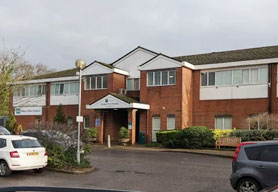
Bishops Wood Hospital is a 42 bedded acute care unit located in Middlesex, UK. Offering treatment and diagnostic services for more than 25 specialties, the hospital was established to offer the highest standard of care and services to patients from across the world. The hospital is a part of the private Circle Healthcare Group, which is a leading provider of state-of-the-art healthcare services and has multiple hospitals and clinics across the world.
The hospital has over 120 specialists and surgeons working with them to provide a variety of surgical and non-surgical treatments to people. The hospital is particularly known for a variety of orthopedic procedures that are carried out, including knee and hip surgery, hand and wrist surgery, foot and ankle surgery, and shoulder and elbow surgery. The hospital has been instrumental in slowly expanding its medical service and now offers treatments to patients requiring primary, secondary as well as tertiary care.
The hospital boasts of its team of medical and nursing staff, which is available 24 hours a day. Every medical specialist is a part of a multidisciplinary team, which includes specialists from the in-house radiology and physiotherapy department.
Facilities Provided:
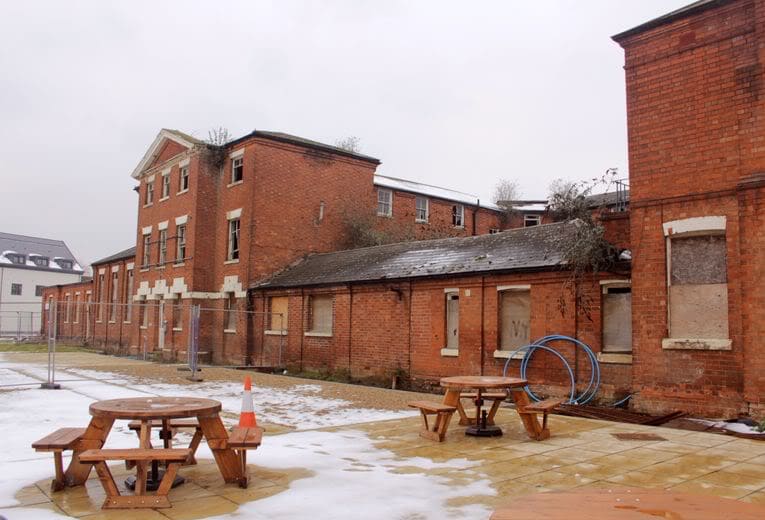
St Edmund Hospital has 26 beds with all rooms offering the privacy and comfort of en-suite facilities, views of the gardens, TV, and high-speed Wi-Fi. The hospital has three functional Operation Theatre for minor or major surgeries
The hospital has an imaging department and physiotherapy team based at the hospital to ensure the best care before and after treatment. The Hospital has a dedicated day case recovery area where patients can relax after day case procedure until discharged from the hospital.
Room service is provided to all inpatients by our catering team. All dietary needs can be catered for at the hospital.
The hospital has car parking spaces around the grounds, with a drop-off bay and disabled spaces directly opposite the entrance to the main hospital entrance.
The hospital has all the needed facilities, the latest in technology, and on-site support services; The hospital offers a wide range of procedures from routine investigations to complex surgery.
St Edmunds Hospital has more than 50 consultants who are experts and are s supported by caring and professional staff, dedicated nursing teams, and Resident Medical Officers on duty 24 hours a day, providing care within a friendly and comfortable environment.
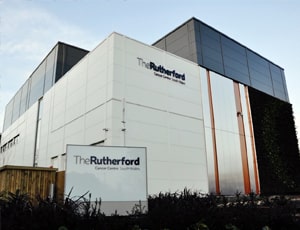
Apart from in-detail treatment procedures available, Rutherford Cancer Centre South Wales located in Wales, United Kingdom has a wide variety of facilities available for International Patients. Some of the facilities which are provided by them are Accommodation, Airport Transfer, Choice of Meals, Interpreter, SIM, TV inside room. Also listed below are some of the most prominent infrastructural details:
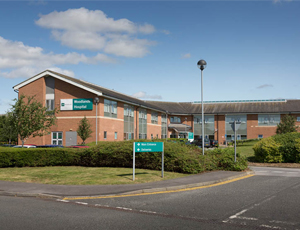
A 38-bedded hospital, Woodlands Hospital is supported by about 150 experienced doctors. It provides the highest standards of modern medical care and is BUPA accredited for its breast care services. All the staff at the hospital are totally committed to ensuring that patients are confident and comfortable with all aspects of their visit. It has resident medical officers available 24/7. Woodlands Hospital has an MRI scanner, an endoscopy unit, and a fully equipped gymnasium in addition to the two laminar flow theaters. It treats NHS-funded patients besides self-funding and insured patients. The hospital has access to the latest equipment and offers private facilities to patients in Richmond, Darlington, and Barnard Castle.
Breast cancer is a type of cancer that originates in the cells of the breast. While it can occur in men as well, it is far more prevalent in women.
Following skin cancer, breast cancer stands as the second most frequently diagnosed cancer among women in the United States. However, it's crucial to recognize that breast cancer is not exclusive to women, as everyone is born with some breast tissue, making it a condition that can affect individuals of any gender.
Improved breast cancer screening techniques enable healthcare providers to detect the presence of breast cancer at an earlier stage. Early cancer detection greatly increases the chances of effective therapy and recovery.
The exact reason that causes breast cancer is unclear, even though every eighth woman suffers from it. However, several factors have been associated with the development of breast cancer. Some of the breast cancer risk factors include:
The risk of breast cancer naturally increases as women age. The risk is also higher in women who have a family history of breast or ovarian cancer, possess BRCA1 and BRCA2 genes, or have had their periods before the age of 12.
The main types of breast cancer are based on where the cancer begins, whether it's in the ducts or lobules of the breast, and whether it has spread beyond its original location. The two broad categories are in situ (confined to the site of origin) and invasive (has spread beyond the original location). Here are some common types:
Most commonly, as a part of treatment for breast cancer, surgery is conducted to remove the cancerous lump or growth from the breasts. Depending on the extent of the cancer and its stage, surgery may be accompanied by another form of treatment as well, which is conducted either before or after the surgery.
The doctor decides upon a breast cancer treatment plan that is most suitable for the patient. The decision may depend upon the extent of spread, the overall health of the patient, the stage, and the type of breast cancer (inflammatory, cancer during pregnancy, lobular carcinoma, ductal carcinoma, and invasive breast cancer).
The team that conducts breast cancer treatment includes a surgeon, a medical oncologist, and a radiation oncologist. The different breast cancer treatment options are divided into two types:
Local Treatment: This type of treatment is localized, that is, it is only used to treat one specific location or primary site affected by cancer. It does not have any impact on the rest of the body.
The following are the two types of local treatment:
The radiation can either be delivered externally or by placing a small radioactive pallet in the affected area internally. The latter form of radiation therapy is known as brachytherapy.
II. Systemic Treatment: This type of treatment involves the use of drugs that can be administered either orally or intravenously. The choice of drugs depends on the type of systemic treatment opted for, which, in turn, is dependent upon the extent and the type of cancer.
The recovery journey following breast cancer treatment, though generally less painful and traumatic than some other critical cancers, brings about certain adjustments for patients. These changes encompass various aspects of their physical and emotional well-being:
Options like cosmetic surgery provide avenues for individuals to regain a sense of normalcy.The unique challenges that breast cancer survivors face underscore the importance of comprehensive support, encompassing physical, emotional, and psychological aspects. While the journey may have its complexities, addressing these changes with a tailored and holistic approach contributes to individuals' overall well-being and resilience in their recovery.
Ask your healthcare adviser for the best multiple options and choose the one that meets your expectations
While depending upon a range of factors, the minimum cost for Breast Cancer Treatment in London is $15000. QHA Trent Accreditation, ISQUA, UKAF are just some of the accreditations which top hospitals in London hold where a Breast Cancer Treatment is conducted.
Different hospitals have different pricing policy when it comes to the cost of Breast Cancer Treatment in London. There are many hospital who cover the cost of pre-surgical investigations of the patient in the treatment package. Typically, the package cost of Breast Cancer Treatment in London includes the expenses related to the surgeon's fee, anesthesia, hospital, meals, nursing and ICU stay. A prolonged hospital stay due to delayed recovery, new diagnosis and complications after surgery may increase the cost of Breast Cancer Treatment in London.
Breast Cancer Treatment in London is offered by multiple hospitals across the country. Some of the most renowned hospitals for Breast Cancer Treatment in London include the following:
The recovery of the patient many vary, depending on several factors. However, on an average, patient is supposed to stay for about 26 days in the country after discharge. This time frame is important to ensure that the surgery was successful and the patient is fit to fly back.
London is considered to be one of the best places for Breast Cancer Treatment in the world. This is because of the availability of some of the best doctors, advanced medical technology and good hospital infrastructure. However, there are other cities as mentioned below that are popular for Breast Cancer Treatment as well:
Apart from the cost of Breast Cancer Treatment, the patient is also required to pay additionally for daily meals and guest house accommodation. These are the charges for daily meals and accommodation outside the hospital. The per day cost in this case may range from 55 USD.
The patient is supposed to stay at the hospital for about 4 Days after Breast Cancer Treatment surgery for monitoring and care. This phase is important to ensure that the patient is recovering well and is clinically stable. During this time, several tests are performed before the patient is deemed suitable for discharge.
There are about 4 Hospitals Breast Cancer Treatment hospitals in London that are best known for their services. These hospitals have the required expertise as well as infrastructure available to handly patients who need Breast Cancer Treatment. Apart from good services, the hospitals are known to follow all standard and legal guidelines as dictated by the local medical affairs body or organization.
Some of the most sought after doctors for Breast Cancer Treatment in London are: